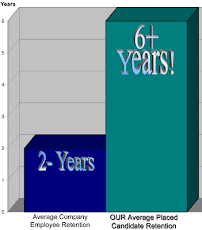
"If you want a job, take down the Facebook photo of you sucking a joint on your birthday and delete that blog post about how you’d like to torch the house of your boss.
Social media sites can help or hinder a job search, says career training coach Paul Anderson. Hunters in today’s tough job market need to know the difference.
Anderson will share his tips on how job seekers can use social media to their advantage in one of a series of employment workshops at the Tacoma Public Library. He’ll present “Job Seeker 2.0: Building Strategic Relationships Through Social Media” at the library’s main branch in downtown Tacoma on March 27.
Anderson, a career coach for seven years, founded his Redmond-based, ProLango Consulting Inc. in 2008 after earlier working as a manager at Expedia and Microsoft.
Job hunters can land a job without social media, Anderson said, but correct use of the sites enhances their professional image. If a potential employer scours the web for an applicant and turns up nothing, it can reduce trust in the candidate.
“With today’s economy, it has become almost impossible to not have a social media and personal branding presence,” Anderson said. “Candidates need to manage their own image and their careers. The social media sites allow one to do this.”
Hiring managers are overwhelmed sorting through hundreds of resumes for a single opening. That makes it all the more crucial for applicants to stand out.
“A lot of job seekers are using approaches that might have worked two years ago,” Anderson said. They’re applying online for advertised jobs on Monster.com, careerbuilder.com, and individual company Web sites. Yet, national estimates are that only 15 percent of positions are filled by online applicants, while the remainder are hired through word of mouth, networking, and relationships.
Far too many applicants inadvertently send themselves to the cyberspace trash can.
Anderson routinely talks with recruiters and hiring managers who eliminate candidates after checking their personal Web sites as part of the screening process.
New “applicant tracking systems” automatically search the Web and spit out social media pages, news articles, photos and whatever else lies on a candidate’s Internet trail. Sometimes the revelations include pages the user intended to be private.
“They find candidates all the time bad-mouthing their employers on social media sites like Facebook, Twitter, and MySpace,” he said. “They’ll post inappropriate photos – maybe they got drunk with friends for fun. The employer says, ‘Do I really want that person working for me?’ ”
Even seemingly innocent information can raise a red flag.
Some employers use the real estate site Zillow.com to weed out candidates living too far away. Or, if the company plans to relocate a candidate in the future, they can guess which applicants are likely to move based on how long they’ve owned their home, Anderson said.
But the Web also can be a job hunter’s friend, revealing openings that aren’t yet widely advertised, or that may never be.
Instead of paying to advertise through an online employment site, many firms now announce jobs on Twitter, and direct applicants to their company site, Anderson said. A prospective graphic designer, for instance, could search Twitter for “Seattle” and “graphic designer” and see jobs pop up.
Smart job seekers turn to the Internet to develop their personal “brand,” the professional identity they want the world to see.
Using a business networking site, such as Linkedin.com, to list favorite books, successful projects and endorsements from colleagues may impress prospective employers.
And that leads to the most critical factor in landing the perfect job: building relationships.
Anderson recommends job seekers narrow their search to specific companies they want to work for. Next, find ways to meet a company employee who will put in a good word for them or alert them to job postings.
To do that, he suggests:
• Drawing upon neighbors and friends. Ask a neighbor whose cousin works at your dream workplace to introduce the two of you.
• Using a professional or social media site to search for acquaintances who are friends or associates of employees at the desired company.
• Set up an informational interview with an employee at the company to learn about their job or some aspect of the business.
• Call to see if your resume made it to the company. The call sometimes leads to an interview set up by a manager who might otherwise have overlooked the application.
Looking for the next job can even begin if you have a job.
“Right now, you have the advantage of being employed; you’re not the desperate job seeker,” Anderson said. “A layoff could be two years from now.”
for a copy of the full article, contact Debby Abe:
debby.abe@thenewstribune.com















